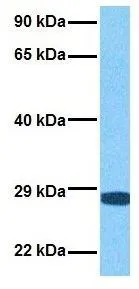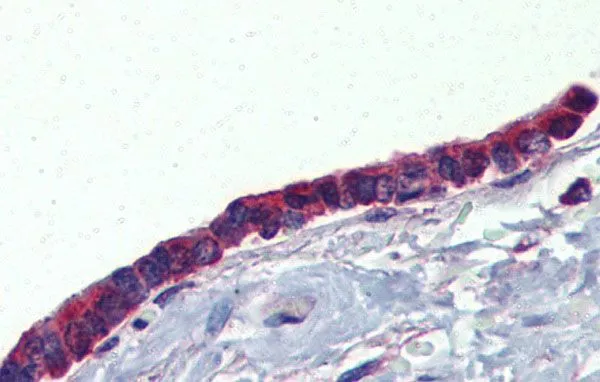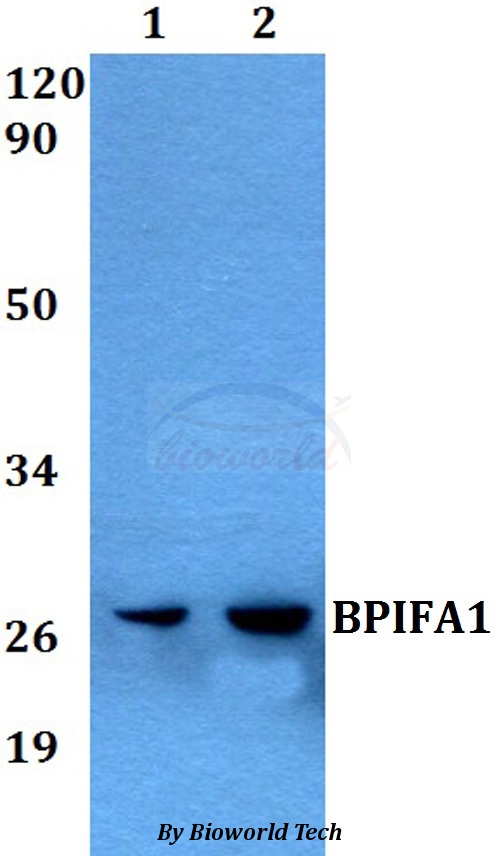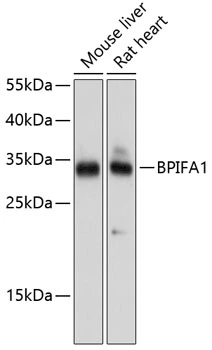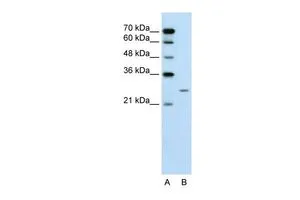
WB analysis of Jurkat cells using GTX47015 PLUNC antibody at 0.2-1μg/ml.
Lane A: marker
Lane B: Jurkat cells
PLUNC antibody, Internal
GTX47015
ApplicationsWestern Blot, ImmunoHistoChemistry, ImmunoHistoChemistry Paraffin
Product group Antibodies
ReactivityHuman
TargetBPIFA1
Overview
- SupplierGeneTex
- Product NamePLUNC antibody, Internal
- Delivery Days Customer9
- Application Supplier NoteWB: 0.2-2.5 ug/ml. IHC-P: 2-10 ug/ml. *Optimal dilutions/concentrations should be determined by the researcher.Not tested in other applications.
- ApplicationsWestern Blot, ImmunoHistoChemistry, ImmunoHistoChemistry Paraffin
- CertificationResearch Use Only
- ClonalityPolyclonal
- Concentration0.5-1 mg/ml
- ConjugateUnconjugated
- Gene ID51297
- Target nameBPIFA1
- Target descriptionBPI fold containing family A member 1
- Target synonymsLUNX, NASG, PLUNC, SPLUNC1, SPURT, bA49G10.5, BPI fold-containing family A member 1, ligand-binding protein RYA3, lung-specific protein X, nasopharyngeal carcinoma-related protein, palate lung and nasal epithelium clone protein, palate, lung and nasal epithelium associated, protein Plunc, secretory protein in upper respiratory tracts, short PLUNC1, tracheal epithelium enriched protein, von Ebner protein Hl
- HostRabbit
- IsotypeIgG
- Protein IDQ9NP55
- Protein NameBPI fold-containing family A member 1
- Scientific DescriptionThis gene is the human homolog of murine plunc, and like the mouse gene, is specifically expressed in the upper airways and nasopharyngeal regions. The encoded antimicrobial protein displays antibacterial activity against Gram-negative bacteria. It is thought to be involved in inflammatory responses to irritants in the upper airways and may also serve as a potential molecular marker for detection of micrometastasis in non-small-cell lung cancer. Multiple transcript variants resulting from alternative splicing in the 3 UTR have been detected, but the full-length nature of only three are known. [provided by RefSeq, Aug 2014]
- ReactivityHuman
- Storage Instruction-20°C or -80°C,2°C to 8°C
- UNSPSC41116161

